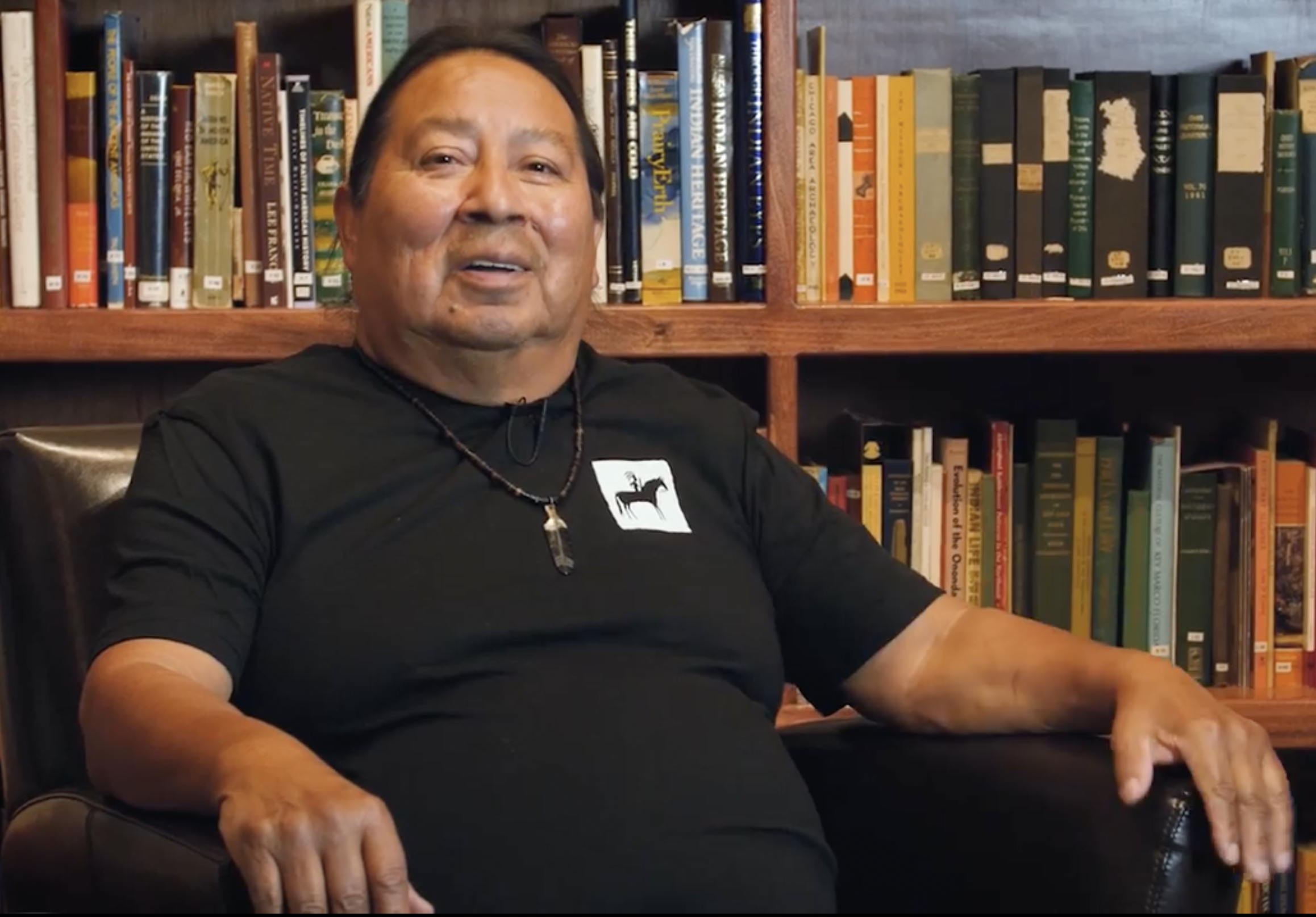
- Details
- By Jenna Kunze
On the phone from Kansas, Oklahoma, Cherokee Nation citizen Lawrence Panther speaks in his second language, English, explaining how he began teaching his first: Cherokee
“I about lost it, my speaking ability,” Panther told Native News Online. Up until third grade, Panther said he spoke Cherokee fluently with friends and family, and didn’t know English at all. But from the third grade through high school, he was immersed in English through the public school system and boarding school, and Cherokee was spoken less and less.
It wasn’t until he came back home at age 25 that he realized he wasn’t able to roll his tongue when he tried to speak Cherokee. “I had to relearn my language,” he said.
Want more Native News? Get the free daily newsletter today.
Now, he’s one of only 3,000 fluent Cherokee speakers left after the language was nearly eradicated by Indian boarding schools and forced assimilation. A self-taught reader and writer, he’s sharing the language with as many people as he can.
Panther led a free Cherokee language class at the Museum of Native American History (MONAH) in Bentonville, Arkansas on Saturday. It was the second in the museum’s quarterly “Art of the Cherokee Language” series. In the first session remotely streamed while the museum was closed for the pandemic last year, Panther went over Cherokee beginners grammar and vocabulary. His lesson over the weekend focused on conjugations, according to the museum’s director Charlotte Buchanan-Gale.
“It was a lovely mix of people,” Buchanan-Gale, who attended the event Saturday, told Native News Online. “There were some people that had Indigeous heritage, some did not. Some were Cherokee. It wasn’t just elders, there were young people, too,” she said.
Panther is encouraging anyone and everyone interested to join in. The date for the next event hasn’t been set yet, but will likely be early 2022.
“I think it’s very important that we still carry on our language and inform the younger ones who they are, who we are,” Panther said. “The language is very time consuming and a lot of people get discouraged trying to learn it. I encourage anybody, everybody to learn.”
In addition to language courses, MONAH is also hosting a storytelling event from Amy Bluem, member of the Chickasaw Nation, later this month, and a beginner flute workshop with Cherokee Nation flutist Gabby Nagel.
Learn more about MONAH’s events.
More Stories Like This
Native News Weekly (August 25, 2024): D.C. BriefsNavajo Nation Mourns the Passing of Former Vice President Rex Lee Jim
Deb Haaland Earns Endorsement From Communications Workers of America Local 7076
University Soccer Standout Leads by Example
Two Native Americans Named to Democratic Congressional Campaign Committee's“Red to Blue” Program
Help us defend tribal sovereignty.
At Native News Online, our mission is rooted in telling the stories that strengthen sovereignty and uplift Indigenous voices — not just at year’s end, but every single day.
Because of your generosity last year, we were able to keep our reporters on the ground in tribal communities, at national gatherings and in the halls of Congress — covering the issues that matter most to Indian Country: sovereignty, culture, education, health and economic opportunity.
That support sustained us through a tough year in 2025. Now, as we look to the year ahead, we need your help right now to ensure warrior journalism remains strong — reporting that defends tribal sovereignty, amplifies Native truth, and holds power accountable.
 The stakes couldn't be higher. Your support keeps Native voices heard, Native stories told and Native sovereignty defended.
The stakes couldn't be higher. Your support keeps Native voices heard, Native stories told and Native sovereignty defended.
Stand with Warrior Journalism today.
Levi Rickert (Potawatomi), Editor & Publisher

